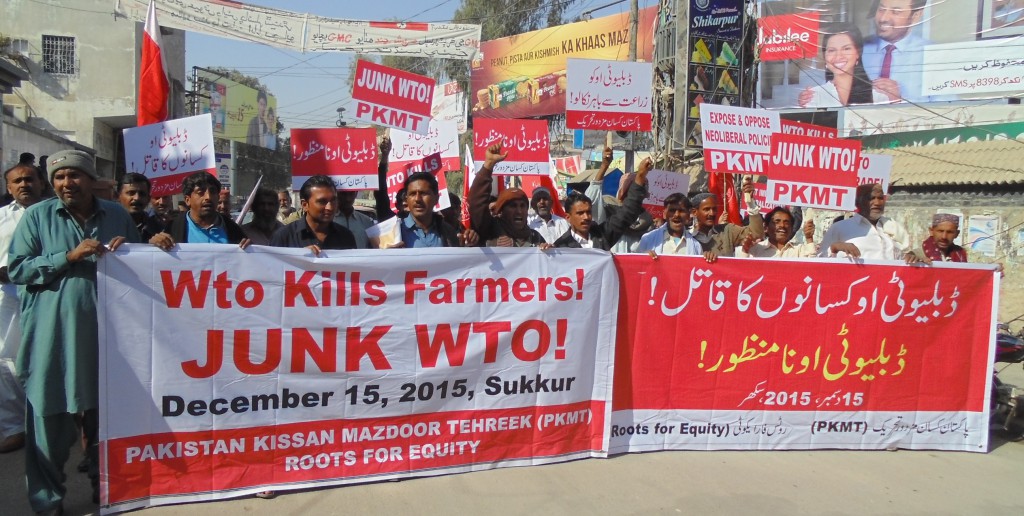KHALEEQ KIANI
ISLAMABAD: The government introduced on Monday a ‘mini-budget’ envisaging additional tax measures of over Rs40 billion by imposing 5-10 per cent regulatory duty on import of 61 items, increasing duty by 5pc on another 289 items and levying 1pc additional customs duty on thousands of other items.
The decision was announced by Finance Minister Ishaq Dar at a news conference after presiding over a meeting of the Economic Coordination Committee of the cabinet to comply with a pre-condition of the International Monetary Fund on the last day of its deadline.
“Additional revenue measures have been taken to make up for a shortfall of Rs39.8bn in the revenue target for the first quarter of the current financial year,” he said. The committee also imposed 30pc regulatory duty on import of maize and kept unchanged the support price for wheat at Rs1,300 per 40kg.
Also read: Rs40bn additional tax measures soon to meet fiscal deficit: IMF
He said the ECC extended the applicability of 0.3pc withholding tax (instead of 0.6pc imposed in the current year’s budget) on banking transactions and filing of income tax returns to Dec 31.
The meeting did not take up a proposed $16bn contract for import of liquefied natural gas from Qatar.
Mr Dar said additional measures would generate Rs4.5bn through imposition of 5-10pc regulatory duty on 61 items which had no such duty. He said the Federal Board of Revenue had identified around 1,400 non-essential imported luxury items that had eaten away almost half of around $3bn savings in the shape of lower oil import bill, but being a member of the World Trade Organisation it was not possible for Pakistan to ban them.
Mr Dar said another Rs4.5bn would be generated by increasing by 5pc the duty on import of 289 items. The government would also get Rs21bn through 1pc additional duty on all items in the 5th schedule of the Customs Act currently being charged at up to 20pc customs duty.
Nine categories having impact on common man would remain exempt from 1pc additional duty. The list includes all non-dutiable imports, agriculture machinery, essential raw materials and inputs for textile, agriculture, pharmaceutical and aviation sectors, socially sensitive items like vegetables and priority industrial items of coalmining and renewable energy given protection under the 5th schedule, excluding the poultry sector.
Other exempted areas from 1pc fresh import duty include import of fertilisers, seeds and spores for sowing, plant and machinery for manufacturing of goods, the telecom sector and raw materials of 25 sectors like artificial leather industry, pesticides, sugar mills, fan and flat rolling steel industry, electric motors, etc.
Another Rs6.5bn would come out of increased Federal Excise Duty (FED) on locally produced cigarettes and Rs2.5bn through 10pc increase in duty on import of second-hand vehicles above 1,000cc capacity.
The minister said the FED on locally produced cigarettes valued at Rs3,600 per 1,000 cigarettes would attract Rs3,150, instead of Rs3,030 while lower valued cigarettes would be charged Rs1,420 per 1,000 cigarettes duty, instead of Rs1,320.
He said the import duty on 800cc and 1000cc used vehicles would remain unchanged at $4,800 and $6,000 per car. The duty on 1000-1300cc vehicles was increased by 10pc to $13,200. The duty on all bigger capacity vehicles was increased by 10pc to $18,500 on 1300-1500cc, to $22,500 on 1501-1600cc and $27,900 on 1601-1800cc. The luxury vehicles would also attract 10pc additional duty.
The duty on locally assembled vehicles had not been changed.
In reply to a question, Mr Dar said the government would fight out a high court’s stay order on collection of super tax to preserve its right to impose tax and file a reference before the apex court to restrict such prohibitive orders which hamper smooth functioning of the revenue team.
List of items
Some of the 61 items that have attracted fresh duties of 5-10pc are: live poultry, frozen fish including fillets and fish meat, coconuts, brazil nuts and cashew nuts, almonds, preserved meat including offal or blood, cocoa paste and cocoa butter, ground nuts, pineapples, citrus fruit, pears, apricots, cherries, peaches, strawberries, tea and coffee essences and concentrates, trunk and suit cases-brief cases apparel and clothing accessories of leather, men’s, women’s and boy’s overcoats, jackets, baby garments and clothing accessories, garments like track suits and swimwear, handkerchiefs, ties, shawls, scarves, mufflers, curtains and interior blinds, tarpaulins and tents, footwear and their parts, imitation jewellery, watches, diapers and sanitary towels.
Some of the 289 items on which regulatory duty was increased from 10 to 15pc are: yogurt, butter, dairy spreads and others, cheese, curd, grated or powdered cheese of all kinds, natural honey, pineapples, avocados, guavas, mangoes, frozen mango, mango pulp, oranges, kino (fresh) , grapefruit, dried litmus products, watermelons, papaws (papayas), apples, pears, quinces, apricots, sour cherries, peaches, plums and sloes, strawberries, raspberries, blackberries, mulberries and loganberries, black, white or red currants and gooseberries, kiwifruit, durians, persimmons, pomegranates, strawberries, raspberries, blackberries, mulberries, loganberries, black, white or red currants and gooseberries, cherries, apricots, prunes, apples, cherries, pine nut (chilgoza), peaches (aaroo), plums (aloocha), lichis, raisins, mixtures of nuts or dried fruits of this chapter, peel of citrus fruit or melons (including watermelons) fresh, frozen, dried or provisionally preserved in brine, in sulphur water or in other preservative solutions, chewing gum, whether or not sugar- coated, white chocolate, cocoa powder, containing added sugar or other sweetening matter, chocolate preparation, malt extract, preparations other than in retail packing, not containing cocoa, containing eggs, vermicelli, stuffed pasta, whether or not cooked or otherwise prepared, other pasta, couscous, corn flakes, prepared foods obtained from unroasted cereal flakes or from mixtures of unroasted cereal flakes and roasted cereal flakes or swelled cereals, bulgur wheat, crisp bread, gingerbread and the like, sweet biscuits, waffles and wafers, rusks, toasted bread and similar toasted products, cucumbers and gherkins, pickles, tomatoes, whole or in pieces, tomatoes paste, mushrooms of the genus agaricus, potatoes and other vegetables and mixtures of vegetables.
Published in Dawn, December 1st, 2015
http://www.dawn.com/news/1223471/rs40bn-new-taxes-in-mini-budget

